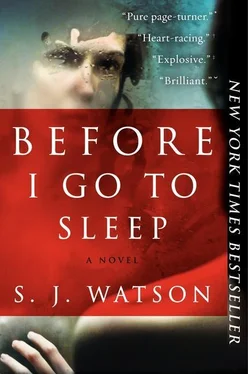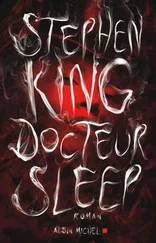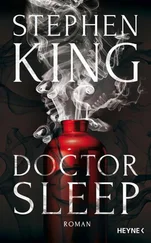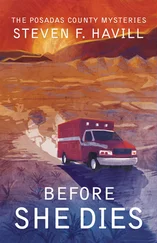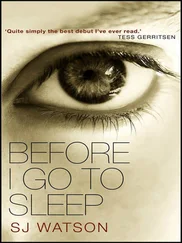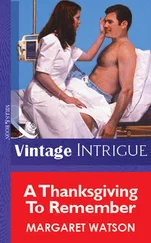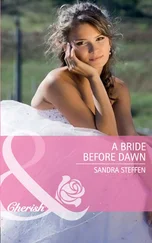I did not know what to feel. Evidence, I thought. Proof that what I had written was true, should I need it tomorrow.
Inside the envelope was a single copy of a book. I took it out. It was a paperback, not new. There was a coffee ring on the front and the edges of the pages were yellowed with age. I wondered if Dr. Nash had given me his own copy, whether it was even still in print. As I held it, I saw myself again as I had the other day; younger, much younger, reaching for this novel in an effort to find a way into the next. Somehow I knew it hadn’t worked—the second novel had never been completed.
“Thank you,” I said. “Thank you.”
He smiled. “Don’t mention it.”
I put it underneath my coat, where, all the way home, it beat like a heart.
* * *
As soon as I got back to the house, I looked at my novel, but only quickly. I wanted to write as much as I could remember in my journal before Ben came home, but once I’d finished and put it away, I hurried back downstairs to look properly at what I had been given.
I turned the book over. On the cover was a pastel drawing of a desk, upon which sat a typewriter. A crow was perched on its carriage, its head cocked to one side, almost as if it were reading the paper threaded there. Above the crow was written my name, and above that, the title.
FOR THE MORNING BIRDS, it said . CHRISTINE LUCAS.
My hands began to shake as I opened the book. Inside was a title page, a dedication. For my father —and then, I miss you.
I closed my eyes. A fluttering of memory. I saw my father, lying in a bed under bright white lights, his skin translucent, filmed with sweat so that he almost shone. I saw a tube in his arm, a bag of clear liquid hung from an IV stand, a cardboard tray and a tub of pills. A nurse, checking his pulse, his blood pressure, and he not waking up. My mother, sitting on the other side of his bed, trying not to cry while I tried to force the tears to come.
A smell came then. Cut flowers and low, dirty earth. Sweet and sickly. I saw the day we cremated him. Me wearing black—which I somehow know is not unusual—but this time without makeup. My mother, sitting next to my grandmother. The curtains open, the coffin slides away, and I cry, picturing my father turning to dust. My mother, squeezing my hand, and then we go home and drink cheap, fizzy wine and eat sandwiches as the sun goes down and she dissolves in the half-light.
I sighed. The image disappeared, and I opened my eyes. My novel, in front of me.
I turned to the title page, the opening line. It was then, I had written, with the engine whining and her right foot pressed hard against the accelerator pedal, that she let go of the wheel and closed her eyes. She knew what would happen. She knew where it would lead. She always had.
I flicked to the middle of the novel. I read a paragraph there, and then one from near the end.
I had written about a woman called Lou, a man—her husband, I guessed—called George, and the novel seemed to be rooted in a war. I felt disappointed. I don’t know what I had been hoping for—autobiography, perhaps?—but it seemed any answers this novel could give me would be limited.
Still, I thought as I turned it over to look at the back cover, I had at least written it, got it published.
Where there might have been an author photograph, there was none. Instead, there was a short biography.
Christine Lucas was born in 1960, in the north of England, it said . She majored in English at University College London, and has now settled in that city. This is her first novel.
I smiled to myself, feeling a swell of happiness and pride. I did this . I wanted to read it, to unlock its secrets, but at the same time I did not. I was worried the reality might take my happiness away. Either I would like the novel and feel sad that I would never write another, or I would not, and feel frustrated that I never developed my talent. I could not say which was more likely, but I knew that one day, unable to resist the pull of my only achievement, I would find out. I would make that discovery.
But not today. Today I had something else to discover, something far worse than sadness, more damaging than mere frustration. Something that might rip me apart.
I tried to slip the book back in the envelope. There was something else in there. A note, folded into four, the edges crisp. Dr. Nash had written on it: I thought this might interest you!
I unfolded the paper. Across the top, he’d written Standard, 1986 . Beneath it was a copy of a newspaper article, next to a photograph. I looked at the page for a second or two before I realized that the article was a review of my novel and the picture was of me.
I shook as I held the page. I didn’t know why. This was an artifact from years ago; good or bad, whatever its effects had been, they were long gone. It was history now, its ripples vanished completely. But it was important to me. How was my work received, all those years ago? Had I been successful?
I scanned the article, hoping to understand its tone before being forced to analyze the specifics. Words jumped out at me. Positive, mostly. Studied. Perceptive. Skilled. Humanity. Brutal.
I looked at the photograph. Black-and-white, it showed me sitting at a desk, my body angled toward the camera. I am holding myself awkwardly. Something is making me uncomfortable, and I wondered if it was the person behind the camera or the position I am sitting in. Despite this, I am smiling. My hair is long and loose, and although the photograph is black-and-white, it seems darker than it is now, as if I have dyed it black, or it is damp. Behind me, there are patio doors, and through them, just visible in the corner of the frame, is a leafless tree. There is a caption beneath the photograph. Christine Lucas, at her North London home .
I realized it must be the house I had visited with Dr. Nash. For a second, I had an almost overwhelming desire to go back there, to take this photograph with me and convince myself that yes, it was true; I had existed, then. It had been me.
But I knew that already, of course. Though I couldn’t remember it anymore, I knew that there, standing in the kitchen, I had remembered Ben. Ben and his bobbing erection.
I smiled and touched the photograph, running my fingertips over it, looking for hidden clues as a blind man might. I traced the edge of my hair, ran my fingers over my face. In the photograph, I look uncomfortable, but also radiant in some way. It is as if I am keeping a secret, holding it like a charm. My novel has been published, yes, but there is something else, something more than that.
I looked closely. I could see the swell of my breasts in the loose dress I am wearing, the way I am holding one arm across my stomach. A memory bubbles up from nowhere—me, sitting for the picture, the photographer in front of me behind his tripod, the journalist with whom I have just discussed my work hovering in the kitchen. She yells in, asking how it’s going, and both of us reply with a cheery “Fine!” and laugh. “Not long now,” he says, changing his film. The journalist has lit a cigarette and yells to ask not if I mind but whether we have an ashtray. I feel annoyed, but only slightly. The truth is, I am yearning for a cigarette myself, but I have given up, ever since I found out that—
I looked at the picture again, and I knew. In it, I am pregnant.
My mind stopped for a moment, and then began to race. It tripped over itself, caught on the sharp edges of the realization, the fact that not only had I been carrying a baby as I sat in the dining room and had my picture taken, but I had known it, was happy about it.
Читать дальше
